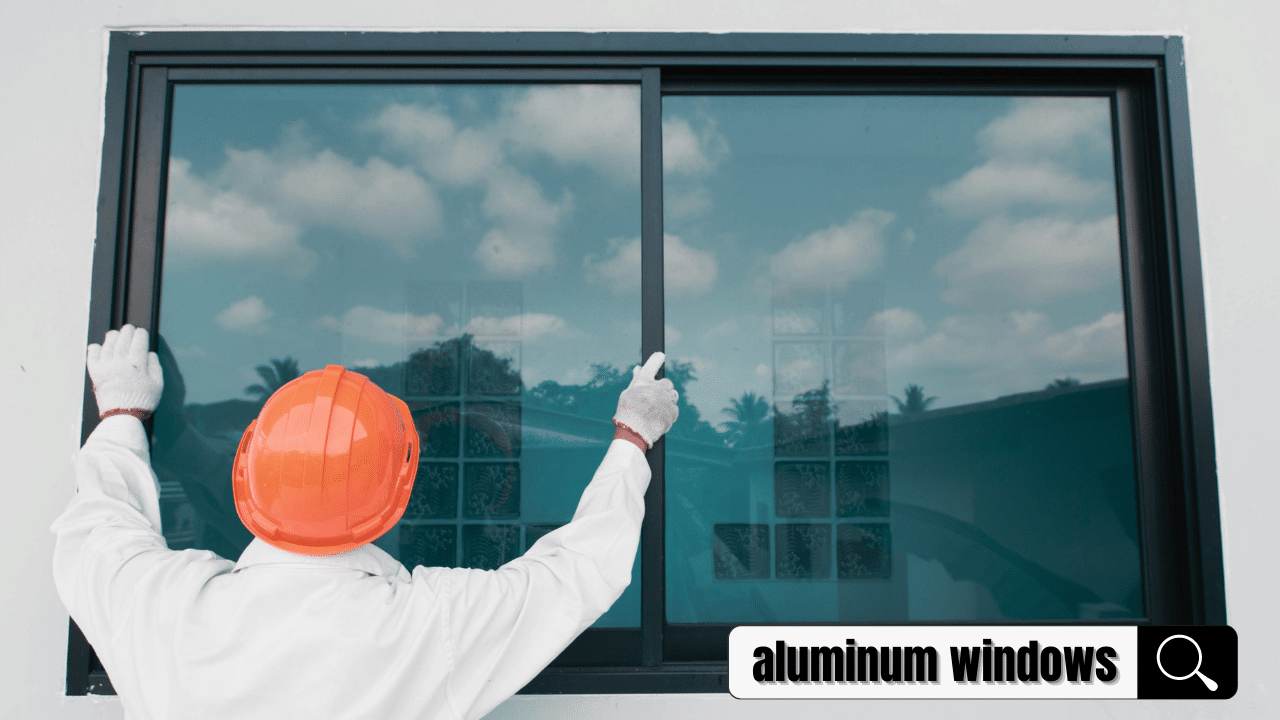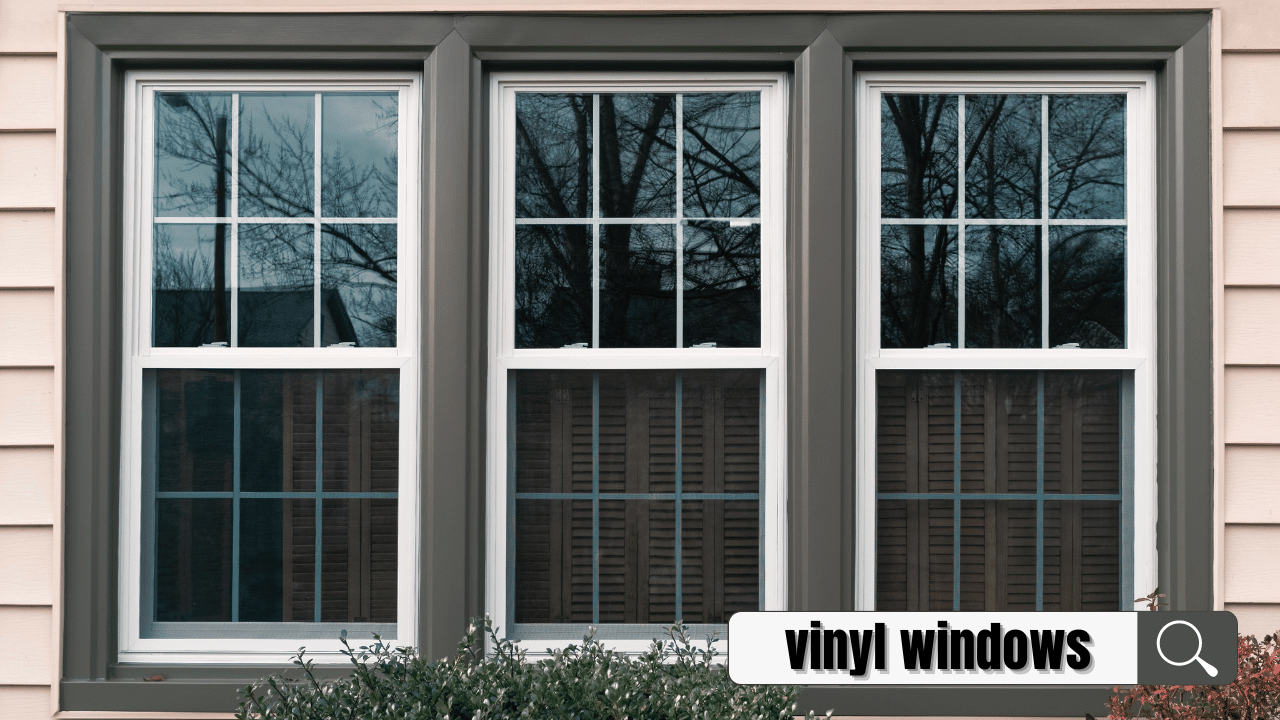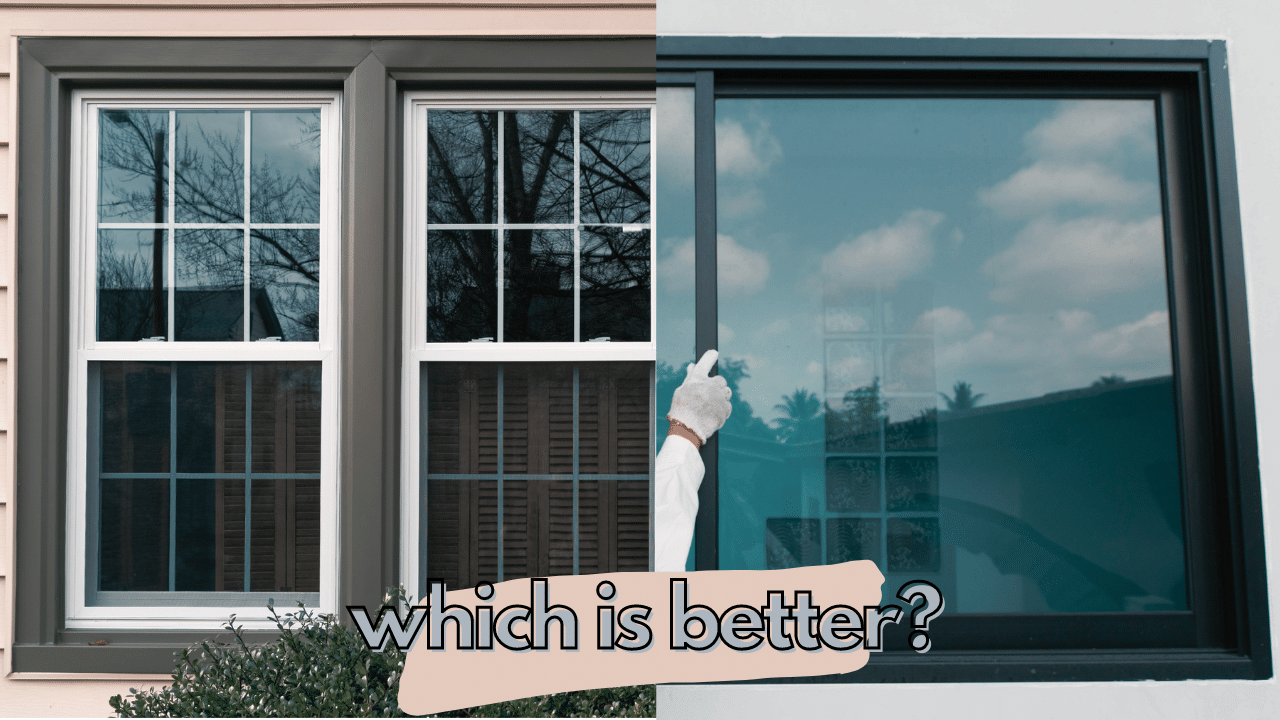Installing new windows or replacing old units can be quite a substantial financial investment for most homeowners in the country. Not to mention, there's quite a lot of factors to consider: window type, style, and, most importantly– frame material. In recent years, two of the most popular window frame material choices are aluminum and vinyl.
So, how much will new windows cost you?
Standard windows installation will cost you anywhere from $9,200 to $27,600. Minus the installation fees, aluminum windows range from $517 to $1,380, while vinyl units cost $431 to $890.
It is ideal to look into the benefits of each window frame type before making the purchase. This decision is something that shouldn't be taken lightly– like that of a coin toss. Both aluminum and vinyl window materials have their strengths: durability, low maintenance, and a cost-effective price point.
In the past, wood material used to be another viable option but gone are the days. The choice now all boils down to either vinyl or aluminum material for your window project.
Let's cover the essential information (such as the average cost, advantages, and disadvantages of both windows) to help you make the right choice for your home needs!
Vinyl vs. Aluminum Windows: A Cost Overview
Single aluminum frames cost around $517 to $1,380, which doesn't cover the labor fees yet. Vinyl single units are priced between $431 and $890.
If you factor in the installation costs, you will pay anywhere from $9,200 to $27,600 to install new aluminum or vinyl windows for a standard-sized home. Consider that several other variables may come into play, which may only hike the total project costs beyond the national average.
On average, aluminum window frames are expected to be at least 30% more expensive than vinyl material. The price will double if you need double-pane windows accordingly.
Aluminum and vinyl window materials are popular in many residential and commercial properties in the country.
So, how do you decide which material is the best for your needs? To start, let's do a quick comparative analysis of the two. (Related: Vinyl vs. Aluminum Windows: Pros + Cons + Costs)
Aluminum Windows vs. Vinyl Windows: Comparison Chart
| | |
|---|
| Available in several colors, with smooth or enamel-textured powder coating. You can customize the shape, size, and panes. | Available in many colors, with smooth or textured stained/dyed PVC. You can customize the shape, size, and panes, although you cannot paint it over with a new color. |
| Casement: $750 - $977 Sliding: $920 - $1,380 Awning: $517 - $690 (Estimates do not include the installation costs.) | Casement: $575 - $776 Sliding: $661 - $891 Awning: $431 (Estimates do not include the installation costs.) |
| Durable in all climates and weather conditions. | Durable in most climates and weather conditions. Might be unstable given extreme changes in temperature. Ideal for residential use. |
| Requires minimal maintenance | Generally maintenance-free |
| | |
| Commonly used in commercial buildings, not ideal for residential use due to its higher costs. | Popular for residential use. |
Advantages of Aluminum Windows
Thanks to their characteristic industrial appeal, aluminum windows prove to be a popular choice for local commercial buildings.
These windows give you improved durability and reliability that’s arguably better than what you would get with windows made of vinyl or wood.
Let’s take a closer look at the benefits of choosing aluminum material for your windows:
Longer Lifespan: Aluminum window units are designed to last. Its longevity makes it a better choice than vinyl windows. With proper maintenance, these windows may last you up to 40 to 50 years. Aside from its durability, aluminum windows are also not prone to degradation, unlike vinyl material.
Improved Energy Efficiency: Before, aluminum windows were seen to be less energy efficient compared to their vinyl counterparts. The material is known to conduct heat and cold, a poor insulator in general. Thanks to various technological advancements, double-glazed aluminum windows are now considered as energy efficient as vinyl units. Several homeowners opt to apply extra coatings to improve the window's efficiency further. You can add thermal breaks to the insulation to prevent excessive cold and heat transfer.
Security Features: Installing new windows requires you to prioritize its added security features. That said, aluminum material generally has more strength and durability than vinyl windows. It also gives you structural advantages because of its build strength. Choosing great-quality locks with secure designs may also improve a window's security levels.
Sturdier and Stronger: Compared to windows made of vinyl, aluminum windows have a larger glass– which is known to be a stronger material. Its strength alone gives you an idea of how vinyl windows are the better option. If you want your vinyl windows to achieve the same level of protection offered by aluminum pieces, expect the total project costs to increase up to 25 to 30%.
Modern Look: The modernistic visual appeal of sleek aluminum windows makes it an excellent choice for homeowners looking for something different. It also comes with different available finishes and color options. In contrast with bulky vinyl window units, the slimmer profile and limited framework of aluminum windows provide consistent contemporary aesthetics. Thin aluminum frames commonly have a smooth or textured powder-coated enamel finish. It fits perfectly with contemporary architectural homes.
Ideal For Larger Homes: Aluminum frames are commonly used in homes requiring large-sized windows. Its innate structural integrity and strength prove to be ideal in handling more oversized windows securely. Accordingly, the strength of aluminum means a higher impact resistance. You will significantly benefit from aluminum windows if your property is located in hurricane-prone areas.
Disadvantages of Aluminum Windows
Of course, aluminum windows also have their fair share of drawbacks. While you can solve these common issues with additional features– some homeowners may find these problems too minor to affect their decision process.
Here are some disadvantages of aluminum windows to consider:
Increased Cost: Simply put, aluminum windows will cost you more than what you’d typically pay for their vinyl counterparts. Not all hope is lost, however. Aluminum window units prove to be a long-lasting choice. It may have higher upfront costs, but it will save you more money in the long run.
Non-Traditional Appearance: If you want your windows to look bare, old-fashioned windows–aluminum material may not be your best bet. These windows are constructed with more unique designs (tilt and turn) and install more glass. They can give you new windows besides the standard up and down ones.
Prone to Corrosion and Color Change: After a given time, aluminum windows' steel or zinc fasteners are prone to rust and pit. It is especially true for properties located in coastal towns with constant salty air. Additionally, the enamel finish in aluminum windows is likely to fade given frequent exposure to strong sunlight. Meanwhile, the dyes in vinyl windows aren't as susceptible to fading.
Advantages of Vinyl or PVC Windows
It is relatively easy to recognize vinyl windows, with their uniform craftsmanship and signature white plastic material. These windows are made from PVC plastic material, developed in the 70s to address the expensive costs of wooden windows.
Here are some benefits of Vinyl or PVC windows you may want to consider:
Cheaper Material Costs: Aluminum windows have a higher upfront cost than vinyl/PVC– given their sturdiness, security, and longevity. If you’re thinking about short-term benefits, plastic will be the cheaper material for your windows. Vinyl windows will cost you around 30 percent less than their standard aluminum counterparts. On average, the national cost of most window installation projects runs from $9,200 to $27,600, with vinyl window units priced at $431 to $890 (minus professional labor costs).
Soundproofing Features: Vinyl windows prove to be a better choice over aluminum units when it comes to soundproofing. It isn't to say aluminum material has poor or subpar soundproofing abilities. Lab tests done by Riverbank Acoustical Laboratories claim that thick aluminum windows do an excellent job of stopping noise like their PVC counterparts. Generally, windows made of vinyl just offer a slight edge in the noise reduction aspect. Energy Efficiency: Although aluminum windows are now on par with their PVC counterparts in terms of energy efficiency, vinyl is an excellent insulation material. AKA, it minimizes possible heat transfer. Homeowners looking for maximum energy-efficient windows can look for ENERGY STAR qualifications. It may cut your energy bill costs by an average of 12 percent per year.
Traditional Look: If you prefer the traditional appearance of most windows, vinyl windows may be what you're looking for. These are notably thicker than their aluminum counterparts, with smooth, textured, or faux wood finishes. Homeowners wanting to mimic the earthy, natural look of wood combined with the durability of newer frame materials can significantly benefit from vinyl windows.
Less Required Maintenance: Vinyl windows are generally maintenance-free. However, you will still need to do a little caulking to prevent airflow around the material if the windows aren't installed correctly. It doesn't mean aluminum window care is high maintenance. Aluminum windows tend to deal with condensation issues more, so frequent lubrication of its moving parts is required to prevent problems. It will also extend the lifespan of your new window units. Vinyl, on the other hand, has a uniform color throughout. It saves you from the costly, time-consuming need to do frequent repainting.
Extra Durability: Vinyl windows are more resistant to dents and chips. Though notably rare, if your vinyl frames are damaged, it's still less likely to show visible damages than aluminum frames. Vinyl windows are commonly made of the same material. Any visible damage on the finish may only show the raw metal lying under it.
Improved Resale Value: A high-end vinyl/PVC window project may give you 74 percent of return value after resale. Regardless of whether you go with the aluminum or vinyl option, replacement windows (or window installation in general) is an excellent investment if you want to maintain the value of your property.
Disadvantages of Vinyl or PVC Windows
Vinyl windows present some problems. For one, they're not as visually appealing and environmentally sound.
Listed below are the setbacks in installing windows made of vinyl or PVC material:
Not Environment-Friendly: Simply put, any plastic material is deemed harmful to the environment. Since vinyl (PVC) is not a natural material, unlike aluminum, it's not a sustainable material that you can recycle once it runs its course. PVC, in general, is not considered eco-friendly. Homeowners who are looking for the most environmentally friendly options may skip choosing vinyl windows.
Lacks Durability: Stronger frames are one of the advantages of having an aluminum window. It allows more glass to be used, resulting in a more fantastic view and more light to pass, especially for slider-type windows. Vinyl windows look very simple and basic when it comes to design. It is perfect for people who want to have a typical window like most of their neighbors.
Uncustomized Design: You get what you see if you have a vinyl type of window, as you cannot customize its design and style. So, ensure to finalize your choice that you will like enough to keep for years. However, aluminum is the way to go if you want to repaint or recoat your window after every few years. It makes sure that your taste and style are in check as it changes.
Final Thoughts
It all boils down to the question, are aluminum windows better than vinyl? (Or vice versa).
To determine the right window frame choice for your home needs, you will need to weigh both the benefits and disadvantages of each option. It will help you choose the ideal system that suits you the most.
If you want to get the most out of your new windows in terms of durability, security, and modernistic visual appeal– aluminum windows may be your best bet. Meanwhile, if you prioritize having cost-effective windows with high energy efficiency and less required maintenance, you will never go wrong with vinyl window units.
Make sure of your preferences and priorities to choose the best material for your next window project.



